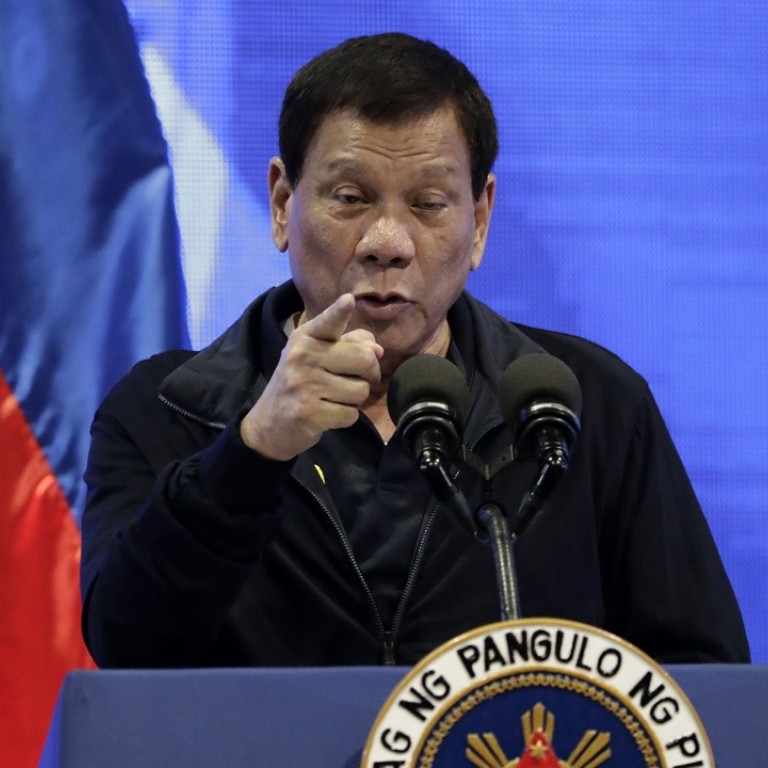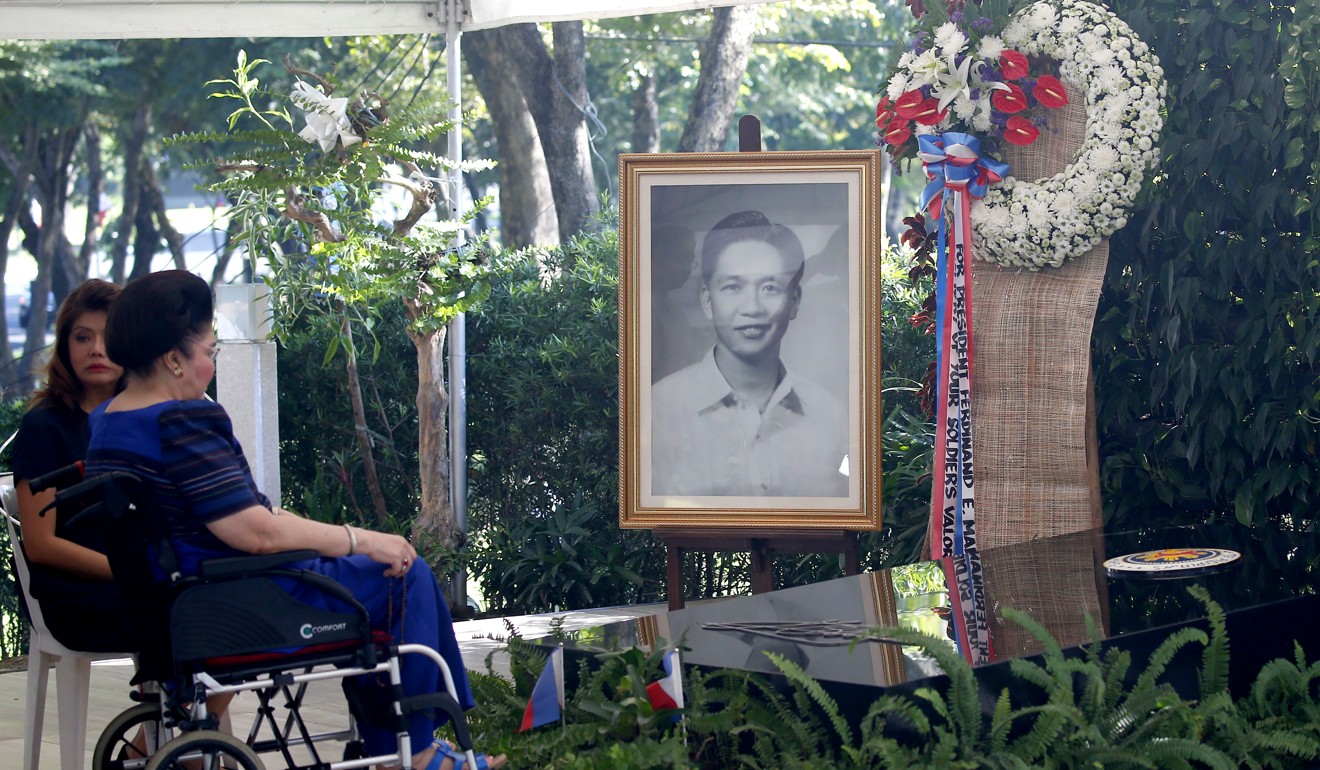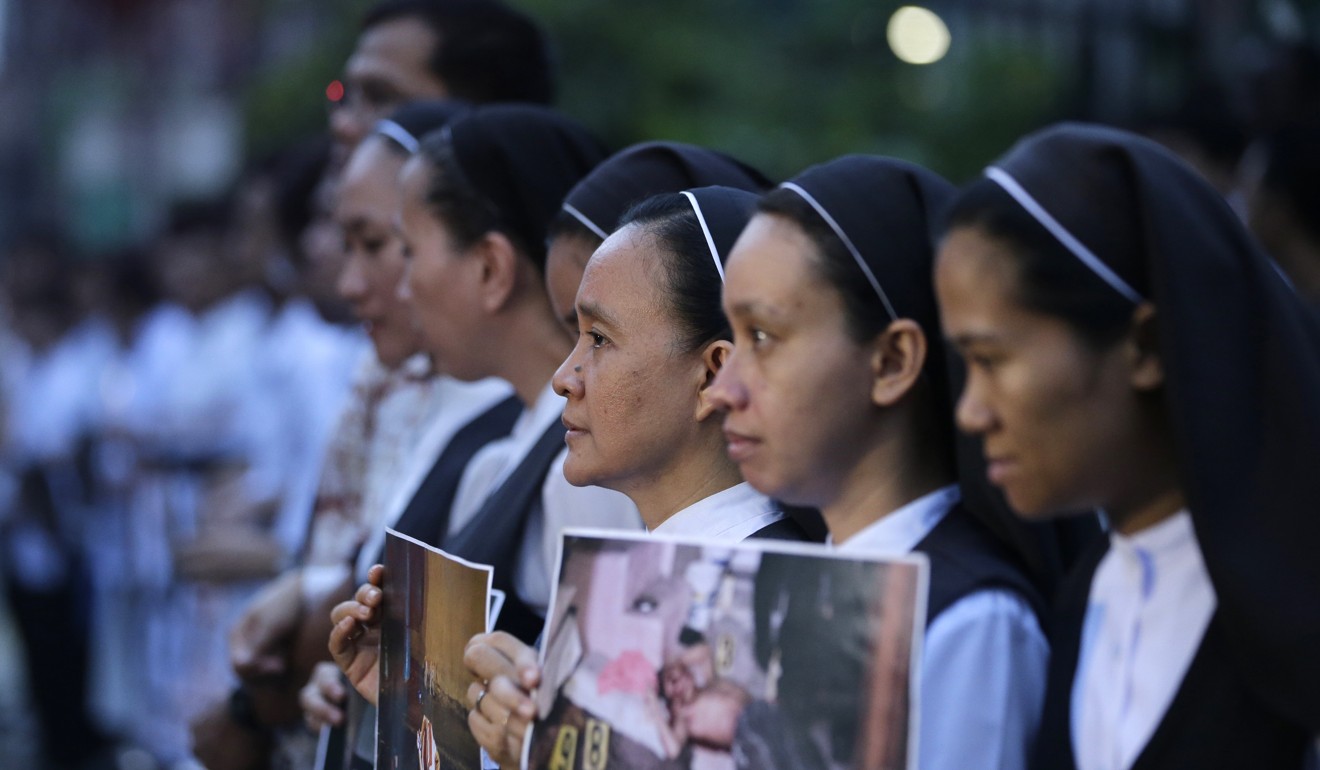
Duterte harks back to bad old Marcos days in the Philippines, leaving investors on edge
William Pesek says the progress made under Benigno Aquino to erase the legacy of the Marcos dictatorship and promote investment has been largely undone by Duterte’s hardline anit-crime campaign and warm gestures to the Marcos family
The goal was partly personal, of course. In 1983, Aquino’s father was assassinated trying to oust the dictator Ferdinand Marcos. His mother, Corazon, helped lead the People Power Revolution that drove Marcos from office (she replaced him in 1986). But it was also smart economics. The kleptocracy Marcos created over 20 years concentrated wealth among a handful of tycoons. Smashing that system is the key to eradicating poverty and increasing global competitiveness.

Philippine President Rodrigo Duterte wants media to accompany police on anti-narcotics operations
Duterte has moved slowly to increase job creation, invest in innovation and productivity-enhancing industries, root out graft or build better roads, bridges, posts and power grids to boost competitiveness. His reliance on government-led infrastructure projects over private-sector ones could be a boon for public corruption, a downer for foreigner investors, and could blow up a national debt Aquino made inroads repairing.
Aquino’s remedy for balance-sheet renewal was attacking graft, increasing transparency and going after tax cheats. Duterte? Gold bars from a notorious family with designs on returning to the palace.

Duterte is lucky in one way: momentum from Aquino’s reforms continues to drive the economy forward, currently at a 6 per cent pace. It will prove fleeting if Manila doesn’t accelerate reforms at a moment when India, Indonesia and Thailand are vying for the same jobs, investors and factories. A bull market in armed assassins walking the streets doesn’t help.
Philippine President Duterte gives police permission to kill ‘idiots’ who resist arrest
Manila, meanwhile, has its own dangerous addiction, one Duterte is making worse: remittances. Weak job growth forces more than 10 per cent of Filipinos to work abroad and send money home. Far more would flee if immigration departments in Dubai, Hong Kong, Singapore and elsewhere processed visas faster.
Aquino realised that people should never be your main export, as the dynamic depletes local labour pools. He began the work of enticing his diaspora home. But Duterte sees overseas workers as a vital support base to be grown and catered to. Imelda Marcos, too. A sizable number of twenty-somethings working abroad, sadly, view the Marcos family more as celebrities than hoarders of national wealth.
For all the gains made since 2010, the Philippines has yet to have the cathartic break with the malfeasance of the past. It now has a president who seems nostalgic for the bad old days and squandering economic progress. If that isn’t a warning sign for investors pining for a new Philippines, what is?
William Pesek is a Tokyo-based journalist and the author ofJapanization: What the World Can Learn from Japan’s Lost Decades. Twitter: @williampesek

